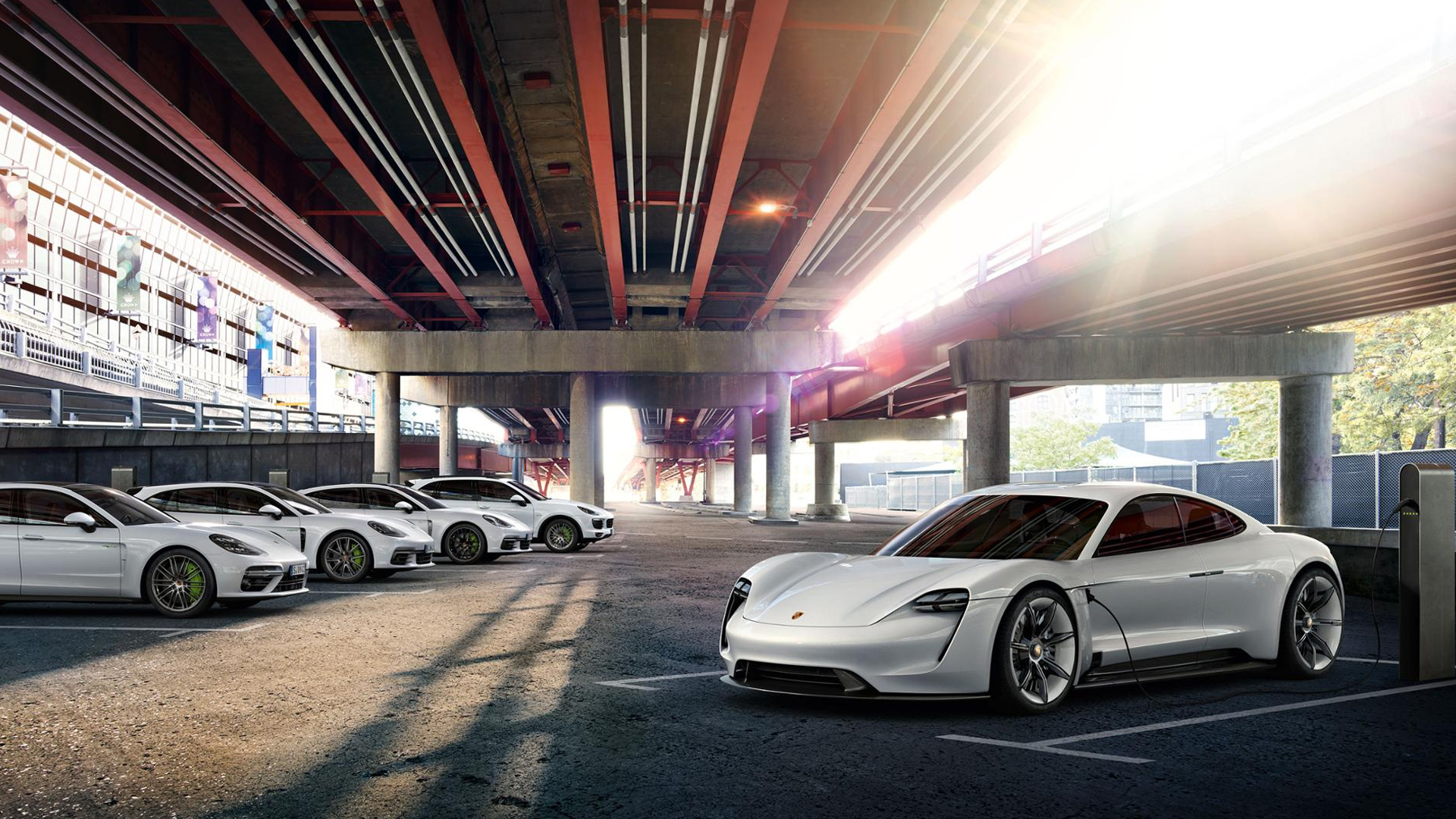

As an automotive enthusiast, electrification is a hard pill to swallow. I love cars; the sounds, the noxious smells, the various (sometimes equally toxic) cultures that surround them. So for automakers to have the audacity to tell me that they’re going to be ripping the familiar hearts and souls from new cars, I feel partly saddened. Porsche is one of those automakers that I’ve always seen as a creative classic, making vehicle after vehicle with the same sporty ancestry as its predecessor. With the introduction of the Mission E, however, no longer will the age-old recipe be used.
Instead, Porsche is going to be shocking the niche luxury performance market by electrifying its latest entry to the showroom. Die-hard Porsche fans will surely find this hard to swallow. Soon, the screaming turbo flat-sixes will go the way of the air cooled 911, and I’m just not sure how to feel about that. But Porsche is confident that I’m going to like it.

In a recent press release that reads like a high-school persuasive essay, the Germans clearly want to sell the benefits of electricity. After all, why wouldn’t they, considering the recent $7.4 billion investment that was sunk into sparking up the entire Porsche fleet?
Electric can be fun, there’s no denying that. It’s not just about the mile per gallon equivalent, but rather the “full power at the push of a button”. Right now, the king of the quick is Tesla’s P100D Model S, which sprints from zero to 60 in around 2.3 seconds, which is exceedingly impressive knowing that the car is nearly 5,000 pounds. Tesla continues to impress with the announcement that its newest roadster would accomplish the feat in just 1.9 seconds. Electric cars are getting extremely quick, and the power delivery is instantaneous.
Don’t get me wrong, I’m a huge advocate for the use of e-mobility that suites the everyday commuter, the car-guy in me questions if I would be bored driving these insanely quick machines. I’m also a huge sticker for driving a stick. The only automobile in my fleet that has had an automatic transmission in over a decade is my wife’s Toyota Venza, so the slightest fear to know that the possibility of not rowing my own gears scares the living hell out of me. Many electric vehicles on the market right now aren’t even coupled with a variable gearbox, let alone something that is manipulable by the person behind the wheel, but that may soon change. Boutique automakers like Genovation have decided that just because cars are electric, doesn’t mean they have to take the pleasure of shifting gears away from the driver. That kind of mentality can certainly keep me on board with my cars being quieter than a winter night.

Porsche recognized that speed is something owners love, but after quite a few sub-three second pulls, performance is not necessarily “reproducible” after the heavy strain put on batteries and electric motors. The company has reportedly developed tech which would allow for more strenuous driving for longer periods of time; perhaps they are talking about the ultra-fast charging stations which would enable lightning-quick recharging. Porsche cites that the availability of gasoline was one of the only reasons that internal combustion engines outlived the electric cars birthed in the early 20th century, which is soon to be contested by the availability that many consortiums are looking to build.
My head wants to say yes to the transition, but my heart screams with uncertainty. Battery technology needs to improve further to increase range or decrease charge times, manual gearboxes need to be made much stronger to handle increased torque (though in a place like North America where the standard transmission fleeting trend, it may become a rare commodity in electric cars), and a stronger approach towards appealing towards the enthusiast needs to be taken. At least Porsche is doing something to pat our backs and whisper sweet nothings to convince us that it’ll all be better soon if we just drink the Kool-Aid.